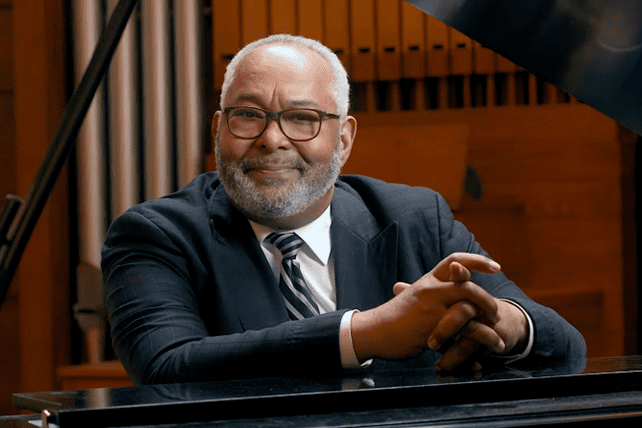(RNS) — W. James Abbington Jr., an expert on Black religious music known for his editing, teaching and playing of congregational music, has died at the age of 65.
GIA Publications, for whom he worked for more than two decades as executive editor of the African American Church Music Series, announced Abbington died on Saturday (Sept. 27).
“Jimmie was our friend and colleague for more than 25 years and he will be greatly missed,” the Chicago-based publisher said on Facebook. “Jimmie was a connector and a mentor in the truest and deepest sense of those words, always taking the time to encourage young musicians and composers, particularly those of color, to reach the heights of their education, celebrating each individual’s accomplishments at every step, and continuing to support their professional work.”
Abbington was a former associate professor of church music and worship at Emory University’s Candler School of Theology, serving on its faculty for two decades. As of July 1, he had taken on a new role as the first person appointed Joseph B. Bethea Professor of the Practice of Sacred Music and Black Church Studies at Duke Divinity School.
He played the piano and sang during a July event at the Durham, North Carolina, school, and had intended to return to campus for the fall semester. But, the school said, he suffered complications after a medical procedure. He died in Georgia.
“The news of the passing of Dr. Abbington has, in the words of Psalms 22, melted my heart. I grieve for his family, friends, and our Divinity community,” said Edgardo Colón-Emeric, dean of Duke Divinity School, in a statement. “We dreamed dreams with our first Joseph B. Bethea Chair, and we will miss the professor, the performer, and the person.”
Stephen Michael Newby, music professor and ambassador for Black gospel music preservation at Baylor University in Waco, Texas, said Abbington “served as the dean of African American church music.” His reach included the written music he published through GIA and the church musicians he trained in conferences, especially the academy of the ecumenical Hampton University Ministers Conference. The Hampton Choir Directors’ and Organists’ Guild named that annual academy in Abbington’s honor in 2010.
“His loss is tremendous,” said Newby, who was a fellow student pursuing his doctorate in music arts with Abbington at the University of Michigan in the 1990s.
Newby recalled how Abbington influenced up-and-coming church musicians to grow in their appreciation of the music they led but also in their faith: “He has discipled hundreds and hundreds of the next-generation worship pastors, organists, pianists, church musicians.”
Among his many publications, Abbington was the author of “Let Mount Zion Rejoice: Music in the African American Church.” He was also a member of the editorial committee of the African American Heritage Hymnal.
Abbington was named a fellow of the Hymn Society of the U.S. and Canada, the organization’s highest honor, in 2015 and was a panelist in its online roundtable discussion on congregational song in May.
Brian Hehn, director of the society’s Center for Congregational Song, said Abbington’s passion for teaching joined with his “brilliance” in playing “anything with keys” — including piano and organ.

